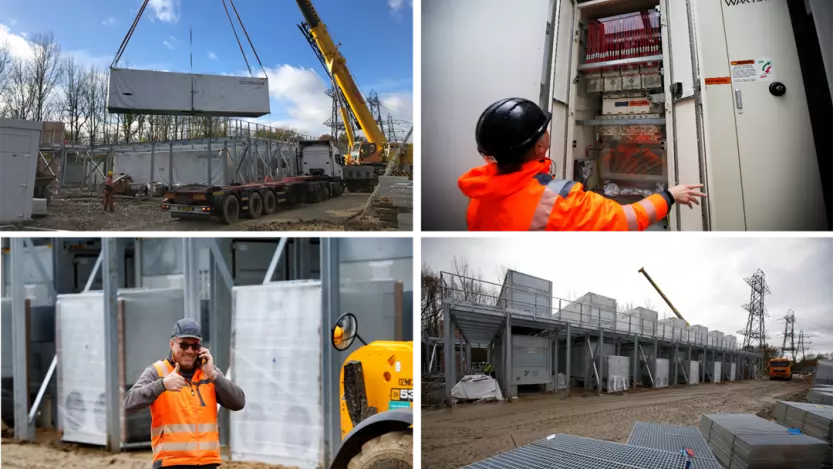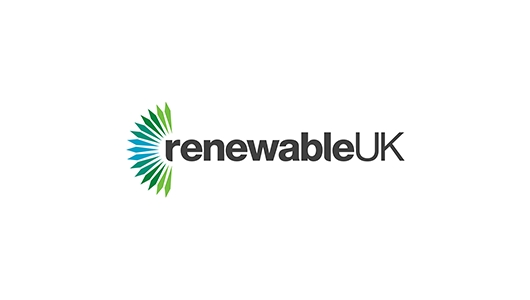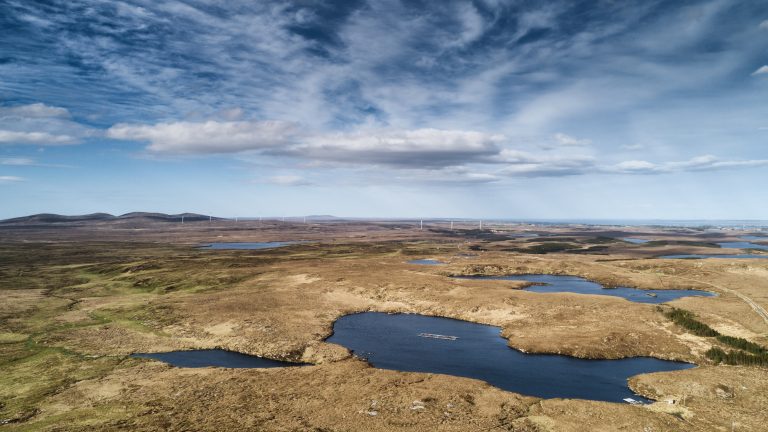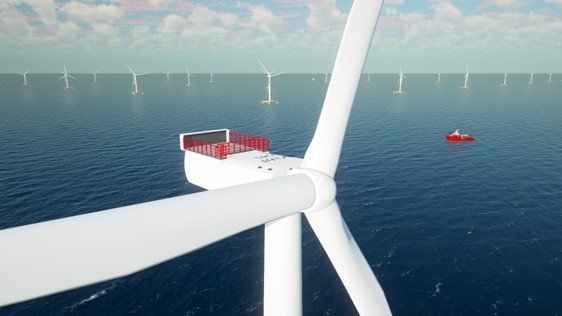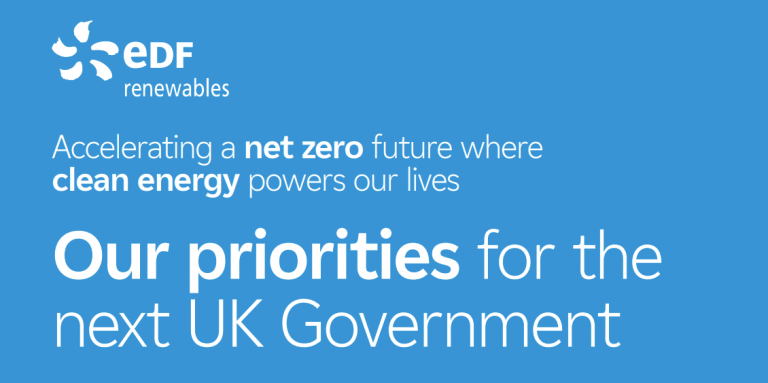
Mel Shanker, General Counsel and Company Secretary at Pivot Power, loves a challenge. Whether that’s travelling to East Africa for her first internship with UNEP, working on massive deals for legal giant, Linklaters, or joining Pivot Power when it was still in start-up mode.
Read on to find out what opportunities working in renewables offers those with a legal background. Discover more about the vital role of energy storage in accelerating the integration of renewables into the grid – and the rollout of high-volume power connections to unlock electric vehicle charging. Both of which are critical to helping Britain achieve Net Zero.
Day-to-day working life in renewables
Q. Whereabouts in the country are you right now?
A. I’m in South London – I’ve been working from home, along with the rest of the Pivot Power team, since March 2020. I’m looking forward to returning to the office when the restrictions ease, as I miss the interaction with everyone. But I’ll probably still work from home some days.
Q. What does your job as General Counsel and Company Secretary at Pivot Power involve?
A. As General Counsel, my job is to deliver high quality legal, commercial and regulatory advice, and help the team navigate business-critical issues and enable the team to deliver our strategy. We are unlocking two fundamental aspects of energy transition: energy storage for system flexibility – so the grid can handle more renewables – and transmission-connected power to support the rollout of more electric vehicles.
As both areas are in their early stages but in rapidly developing markets, we are often working on ground-breaking projects some of which need bespoke agreements. So, I manage the legal risk for all aspects of our business; advise and negotiate contracts for Pivot Power; and also manage external counsel (the advice we receive from external lawyers).
I have also led on some of the key integration workstreams, particularly related to legal, compliance and governance matters, following on from the acquisition by EDF Renewables at the end of 2019. We’ve integrated more robust governance policies and systems as a result, but at the same time managed to retain the agility we had before as a nimble start-up. I’m proud to be able to say we’re collectively really pleased with how it’s all going, and have felt supported from day one by our EDF Renewables colleagues.
There’s a lot of variety in my role, as I’m closely involved in all aspects of our business across the development chain. Whether that’s battery procurement and construction contract negotiations; securing land rights for our projects; or dealing with potential customers on the private wire side of our business, just to name a few!
There’s also the Company Secretary part of my job. In this role, I’m responsible for making sure our governance processes for board-level decision-making are followed. And that the directors on the Pivot Power board are provided with information from the relevant parts of the business to enable them to exercise their directors’ duties. At the same time, I’m always looking for ways in which we can make improvements, which is absolutely supported by the board.
Q. What’s a typical day like?
A. It usually involves talking to the team and counterparties about de-risking and advancing land, grid connections and planning aspects related to our portfolio. In addition, I act as a trusted advisor to – along with being an active member of – the senior management team. So my day will often be interspersed with calls to discuss how to tackle issues impacting the team on a variety of topics – such as construction issues, managing Covid-19-related challenges, taking our projects through the financial investment decision within EDF, overall company strategy and team wellbeing.
There’s also a lot of managing relationships with key external stakeholders – like National Grid, as a lot of our battery projects are on their non-operational land. I’ll take counsel from our external team of lawyers, but at the same time I have the benefit of being both part of the Pivot Power team and wider EDF Renewables legal group, which allows me to draw on the wealth of experience from a diverse group of colleagues. It’s really empowering to have that breadth of support.
My involvement on each project varies depending on how much legal input is needed. On development of a land arrangement, for instance, I’m very much part of the conversation from the start. On the battery procurement side, I am called in when the team start the tender process to select our supplier and produce documentation.
Developing a career in the renewables industry
Q. How did you get into the renewables sector – and specifically energy storage?
A. I’ve always been interested in the intersection of environmental outcomes and the essential role finance plays. I started my career in this space doing an internship with the United Nations Environment Programme in their environmental law division in Nairobi. It was a brilliant experience being in such an international environment and I made some lifelong friends.
It confirmed for me that I want to make a difference and have a career in this industry. But the remit for the UNEP was more at the level of policy and legislation; at times, it felt quite removed from implementing projects on the ground.
So, when I first came to London, I worked for an investment manager, Climate Change Capital. The firm was actively financing projects all over the world in renewables, energy efficiency and avoiding deforestation to reduce emissions and generate carbon credits. It was hugely exciting. And, because it was a new area, it felt like you could become an expert in a relatively short period of time – but there’s clearly always more to learn!
I decided I wanted to broaden my skillset, as I’d specialised so early in the carbon markets. So, when a role at legal firm, Linklaters, came up in their climate change and environment practice, I leaped at the opportunity.
I moved to Linklaters and it was a great experience. Working in an office of 2,000 people, with lots of support services, for example, was very different to my previous role where being in a team of 45 required each of us to do a bit of everything! But I really benefitted from being surrounded by experts and people who were great at their jobs.
I worked on some ground-breaking and innovatively structured carbon credit transactions, quite a few OFTOs (sales of offshore transmission assets – see Fiona Thomson’s blog for more on this) and offshore wind projects. It was hugely exciting because of the scale of these massive renewables infrastructure projects.
The thing about many of the deals we worked on though, is that they took many years to come to fruition, and as external counsel you only touch one narrow part of the deal; you’re always one step removed from the commercial decision-making. I really wanted to be closer to the business and actually see a project that I advised on through from start to finish. And that’s one of the cool things about battery storage – a site can take less than a year to construct. So, you can have the same people at the end cutting the ribbon, as were involved at the project start!
I had seen many conference slots on the business model and revenue stack for battery storage projects, and people often said that battery storage was something for the future. Then I was introduced to Pivot Power and they had an ambitious plan to roll out 2 GW of battery storage – along with a credible model to do that based on smart site selection and connection to the transmission network. This gives them access to huge amounts of power – not just for grid-scale batteries, but also to enable electric vehicle charging. I was instantly hooked!

Q. What differences were there moving from a massive firm to a start-up like Pivot Power?
A. There were different motivations, cultures and ways of working at each workplace. The overwhelming motivator in private practice is excellence – doing the job very well and showing that you’re doing it better than others. The underlying asset we were working on wasn’t as relevant to the legal services we provided.
Whereas, at Pivot, I’m closely involved with all aspects of the business and I am a key member of the team. Also, the whole team is passionate and motivated by accelerating solutions to the climate crisis – like grid-scale batteries and electric vehicle charging infrastructure. Being in start-up mode allowed us to be nimble and solutions oriented. It’s such a fun working environment when the entire team is essentially working in one room together.
Diversity and inclusion within the renewables sector
Q. Do you think the industry could do more to promote diversity and inclusion?
A. The passage of time has started to make a difference. When I first started out, people were happy to pay lip service to diversity and inclusion. At one company I worked at, I remember asking why there weren’t more women in management. And the response always came back to not having the right candidates apply. It didn’t seem like there was a great deal of thought being put into ways to widen the pool of candidates.
Since then – certainly this year – there’s been a much more concerted effort. Because if there aren’t the candidates, then there’s either an issue with the pipeline and we need to be doing something about that. Or we need to find different ways to find the candidates.
After the Black Lives Matter movement in 2020, the team set up a forum to consider what we as a company can do– not just to increase BAME representation, but diversity in general. We contacted ReachOut as part of that employee-led initiative to increase diversity and inclusion. And five members of the team are now giving young people from disadvantaged backgrounds one-to-one mentoring support. It’s a fantastic initiative.
Love what you do; do what you love
Q. What’s your favourite part of the job?
A. It’s definitely being surrounded by passionate people and having a shared purpose. You really feel that at work; it comes across in the way we interact with others and people outside the organisation. You can see we want to get things done properly, but also quickly in the context of the climate crisis.
Q. And what about your least?
A. One of my favourite things about my role is also one of my least favourites, or at least it is one of the biggest challenges of the role… And that’s the balancing of competing interests. I’m currently the sole lead lawyer for Pivot Power so there’s always a lot of plates to juggle. I like being involved in all aspects of the business; but it can be a tussle for my time. And so, for some of the bigger contracts – or where niche expertise is required – we’ll appoint external counsel for support or reach out to other experts within the wider EDF Renewables legal team (which is an impressive and diverse group, I must say!).
Q. What kind of hours do you work – and how does it compare to when you were in a big legal firm (which are renowned for long working hours)?
A. At Pivot Power, it varies depending on business need, but I usually work 9am to 6.30pm; then log back on if I need to after dinner. There were a few late finishes when we were closing the acquisition by EDF Renewables. But nothing like private practice hours, where long days were quite common.
The role of renewables in accelerating towards a Net Zero future
Q. How would you say your role is helping Britain achieve Net Zero?
A. Britain has ambitious targets for increasing generation from renewables – and energy storage is a critical part of achieving this. The role of companies, like ours, is to accelerate the penetration of renewables onto the grid by promoting system flexibility.
On the electric vehicle side, charging electric vehicles requires a lot of power. And that’s not available across the country at the moment on the scale that’s required. But by accelerating and building out the charging infrastructure, we’re helping to make electric vehicles a real option for more people, tackling ‘range anxiety’ for drivers worried about where and when they will be able to charge their cars or buses. And changing people’s behaviour is as critical to reaching Net Zero as bringing more renewables onto the grid.
Strong legal documentation, good governance procedures and great working relationships with our partners creates the framework to deliver these innovative projects. And the more we create and test the framework, the more the projects are viewed as investible by a broader range of market players, which is great for scaling up these solutions.
Q. Do you think people understand what energy storage is?
A. When I describe the two different arms of Pivot Power, most people hear and understand the electric vehicle charging infrastructure side of what we do and get excited about that. Because it’s super engaging and the move to electric vehicles is happening quickly.
Battery storage is just one type of energy storage but it’s certainly the best known. I wouldn’t expect many people to know much about pumped hydro and hydrogen storage. Battery storage seems to be something that really excites people in the energy industry; whereas it’s seems less understood – or, at least, less interesting – to the general public. But this might change as we get more renewables on the grid and people realise it’s a key solution to the intermittency of renewables.
The future of the renewables sector
Q. Which area of renewables are you most excited about?
A. I’m excited about innovative and scalable solutions like our Energy Superhub Oxford project. It brings together a range of different low-carbon technologies – and in such a way that the local community can see tangible benefits. It’s a really exciting project and I love the idea of taking it around the country and exploring what combinations of technologies might work for different councils. This type of set-up also encourages project developers to talk to one another, which produces further innovation.

Q. What would you say to a young person if they were interested in a career in renewables?
A. The climate crisis is one of the biggest challenges facing humanity, so we need everyone to come together and get involved in the solutions, whatever area they’re interested in. So, whether you’re a financier, a project manager, an engineer, or a lawyer, there will be some element of dealing with the climate crisis that you can work in.
Also, for many of us, particularly young people who will live through the consequences, it can be quite alarming to think about what the world will be like if we don’t tackle the climate crisis. Working on the solutions every day is good for your sense of professional and personal wellbeing. I really enjoy working with like-minded people to provide solutions to the climate crisis – it’s something I’m immensely proud of.


